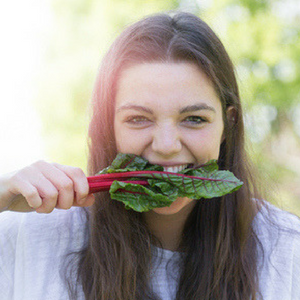
Getting teens to eat what's good for them can be an uphill battle, and bypassing foods like leafy green veggies may take a toll on their heart health, new research suggests.
Teens who ate the least vitamin K-rich foods – such as spinach, cabbage, iceberg lettuce and olive oil – had triple the risk for enlargement of the heart's left pumping chamber compared to their greens-eating peers, according to the study.
According to Health24, the adequate intake (AI) for vitamin K is 120 micrograms per day for male adults and 90 micrograms per day for female adults.
Importance of vitamin K
Changes in the heart's left pumping chamber are usually seen in adults with chronic high blood pressure. Hearts that become bigger are less efficient and less effective, said the study authors from the Medical College of Georgia at Augusta University.
"Those who consumed less [vitamin K] had more risk," Dr Norman Pollock, the study's corresponding author, said in a university news release.
For the study, researchers asked 766 healthy teens, aged 14 to 18, to wear activity monitors for seven days and to record what they ate. Most participants tracked their diet for at least six days. The teens also underwent an echocardiography test to examine their left ventricle.
Only 25% of the study participants had even adequate intake of vitamin K, the researchers found. And overall, about 10% of the teens had some level of enlargement in their left heart ventricle.
Study findings
The findings were published on 2 October in The Journal of Nutrition. The study's co-first author, Mary Ellen Fain, a second-year student at the medical college, said, "Even at that age, it seemed to make a difference in their hearts."
The findings held even after considering other possible contributing factors, such as gender, race, physical activity and blood pressure, Fain said.
However, the study doesn't establish a direct causal relationship. The researchers said more studies are needed to assess the association between vitamin K intake and long-term heart health.
How to get more vitamin K
Vitamin K is essential for blood clotting and bone health. This nutrient may also improve activity of a protein, known as matrix Gla protein, which helps prevent calcium deposits from forming within blood vessels.
The following foods are good sources of vitamin K:
- Milk, 250ml, 1 cup – 10 micrograms
- Eggs - 1 whole – 25 micrograms
- Pork, 100g – 88 micrograms
- Beef, 100g – 104 micrograms
- Soybean oil, 1 Tablespoon – 76 micrograms
- Asparagus, raw, 4 spears – 23 micrograms
- Broccoli, ½ cup – 63 micrograms
- Cabbage, raw, ½ cup – 52 micrograms
- Lettuce, 1 leaf – 22 micrograms
- Spinach, ½ cup – 131 micrograms
- Chickpeas, 30g – 74 micrograms
- Strawberries, 1 cup – 21 micrograms
- Green tea, dry 30g – 199 micrograms
Image credit: iStock




 Publications
Publications
 Partners
Partners











